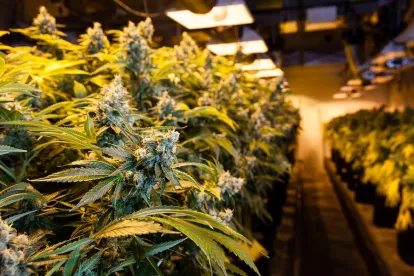Focus on the presidential contest aside, on Election Day, voters in several states approved measures that will impact employers. Namely, Florida employers are now looking at years of incremental increases to the minimum wage, while a slew of other states jumped on the marijuana-legalization bandwagon.
Florida Voters Approve of Gradual Minimum Wage Hikes, to Reach $15 in 2026
Florida voters narrowly approved Constitutional Amendment 2, which gradually increases the Sunshine State’s minimum wage from its current $8.56 per hour to $15 per hour over the next six years. All public and private sector employers must adhere to the following minimum wage rate schedule for nontipped employees:
-
$8.65 on January 1, 2021;
-
$10 on September 30, 2021;
-
$11 on September 30, 2022;
-
$12 on September 30, 2023;
-
$13 on September 30, 2024;
-
$14 on September 30, 2025; and
-
$15 on September 30, 2026.
As of September 30, 2027, the minimum wage rate will be adjusted annually based on changes to the Consumer Price Index, with the recalculated minimum wage to take effect on January 1 of the following year. Amendment 2 does not change the tip credit employers may credit toward the minimum wage for tipped employees who meet the Fair Labor Standards Act eligibility requirement.
Florida has become the first southern state to pass a $15 minimum wage target, and the first state in the country to do so via a ballot measure.
Five States Pass Marijuana Legalization Measures
While Florida was the only state with a minimum wage hike on the November 3 ballot, voters in five states approved legalized marijuana measures, either medical or recreational:
-
In Arizona, 60 percent of voters supported Proposition 207, which allows adults over the age of 21 to use and possess up to one ounce of marijuana, and to grow up to six marijuana plants at a primary residence for personal use.This comes after a similar measure failed by a narrow margin in 2016.
-
Mississippi was the only state considering just medical, as opposed to recreational, marijuana use. About 70% of voters approved Initiative 65, which allows qualified patients with certain debilitating medical conditions to use marijuana products. Qualifying conditions include cancer, epilepsy, post-traumatic stress disorder, and Parkinson’s disease, among others.
-
In Montana, voters passed Initiative 190, which legalizes the possession and use of up to one ounce of marijuana by persons over the age of 21.In addition, I-190 allows individuals to grow up to four marijuana plants and four seedlings in their residence, for personal use, subject to certain restrictions. Anyone currently serving a sentence for an act permitted by I-190 can apply for resentencing or expungement of the conviction.
-
In New Jersey, about two-thirds of voters passed a constitutional amendment legalizing the recreational use of marijuana for adults age 21 and older, as well as the cultivation, processing, and sale of retail marijuana.As New Jersey became the first state in the Mid-Atlantic region to legalize the recreational use of marijuana, commentators predicted other states in the region may follow suit.
-
South Dakota voters approved Constitutional Amendment A, which legalizes the recreational use of marijuana and requires the state Legislature to pass laws providing for medical marijuana use by 2022. Under Amendment A, adults over the age of 21 can possess up to one ounce of marijuana and can grow marijuana plants under certain conditions.
These five states join a growing number of states with permissible recreational and (more prevalent) medicinal marijuana use on the books.




 />i
/>i
